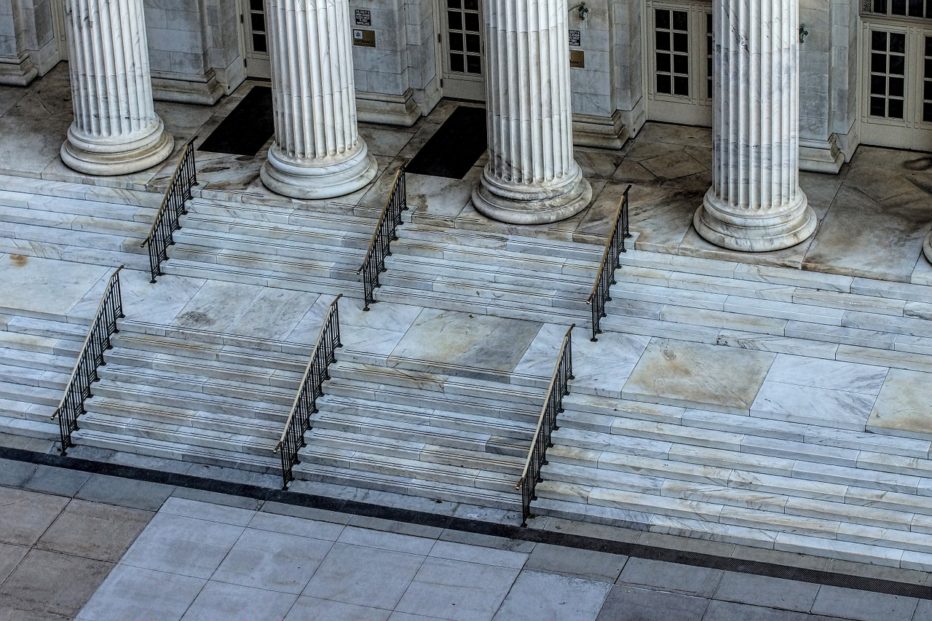I am the Vice Chair of a newly-established organization that supports immigrants, refugees, and asylum-seekers called Central Washington Justice For Our Neighbors. Not only is this work critically important to me personally, but also as part of my work at Pride Foundation, who believes in showing up for immigrant communities each and every day.
Last week, I was invited to accompany a man to a routine court date who we had been supporting. The request was not out of the ordinary—it’s something I have done a few times before and these trips had, thus far, been uneventful.
My friend from Justice For Our Neighbors and I met the man in the parking lot of a nearby Starbucks. His nephew, who had driven him, said he would wait there until we returned.
Gearing up for what he knew he had to do, the man got in my car and we went to district court.
He waited for his turn and, when it came time, the judge congratulated him on his hard work—he had completed all of his requirements in a timely manner, and the judge handed him a certificate of completion with a smile, and kind words of encouragement.
Riding the high of this exchange and resolution, the three of us walked out the door and headed toward my car, and that’s when they swarmed him. Three ICE agents in plain clothes had been waiting for him. They knew him by name.
Standing between me and these ICE agents, after just being congratulated by a district court judge, this man stood frozen with fear. At just over five feet five tall, this man of about 60 with salt and pepper hair stood with panic, his eyes locked with mine, compelling me to do something.
And there was nothing I could do other than record the situation on my phone to ensure his rights were recognized and he was treated fairly. We gathered the names and badge numbers of the ICE agents, and I tried to tell him not to say a word until he met with an attorney. They locked him in the back seat of their white (taxpayer funded) Tahoe and drove off.
In less than five minutes, this man’s life had drastically changed—and just after he had been recognized for doing what was right, for following the rules that had been given to him.
I didn’t know what else to do but go back to the Starbucks parking lot, where his nephew sat waiting for us with anticipation. Having to tell him that his uncle was at that moment headed for Spokane under ICE custody was one of the hardest things I have ever done.
We sat stunned together for a few minutes, all of us in shock. We referred him to an attorney in Spokane, and to the amazing advocates at Spokane Immigrant Rights Coalition. But mostly, we just apologized, over and over again. For the loss of his uncle. For the cruelty of our government. For the uncaring negligence ICE treats people with. For this devastating rise in hostility toward our neighbors who are immigrants.
Eventually, his nephew got in his pickup, and my friend and I headed in to buy coffee for the trip back home. As we were standing in line to order, he came back in and paid for our coffees, asking if we would like something to eat too—showing us kindness and generosity despite everything.
I tried to apologize to him again but all I found was a lump in my throat, and I could not get any words to come out.
All the way back home, all I could think was:
Just like that, you took him away.
Why are we supposed to be so scared of this man?
Why would you send three ICE agents all the way from Spokane to detain this man who was just trying to do everything he needed to do?
In what ways is this community now better, or safer, without him in it?
I don’t know what happens next. We have had few updates on his case, and we don’t know what’s in store for him in the coming days, weeks, and months.
Days later, I keep thinking of the ripple effect this will have as word travels through his family, his friends, and the larger community, and how much it will only serve to intensify their anxiety and fear.
More than anything, I keep thinking: We are better than this. Our world, our country, our community—we are better than this.
Stories like this one are happening every single day under this current administration. We must continue to remember that we are in this together, we are better than this—and we must show up for each other. And this has to stop.
Thank you, thank you, thank you to all of our community partners who are working to support undocumented immigrants and refugees during a time when it’s needed most. Together, we can keep showing up for our neighbors, and create a world where everyone belongs and has the opportunity to thrive.
Tylene Carnell is Pride Foundation’s Regional Philanthropy Officer in Central and Eastern Washington.
